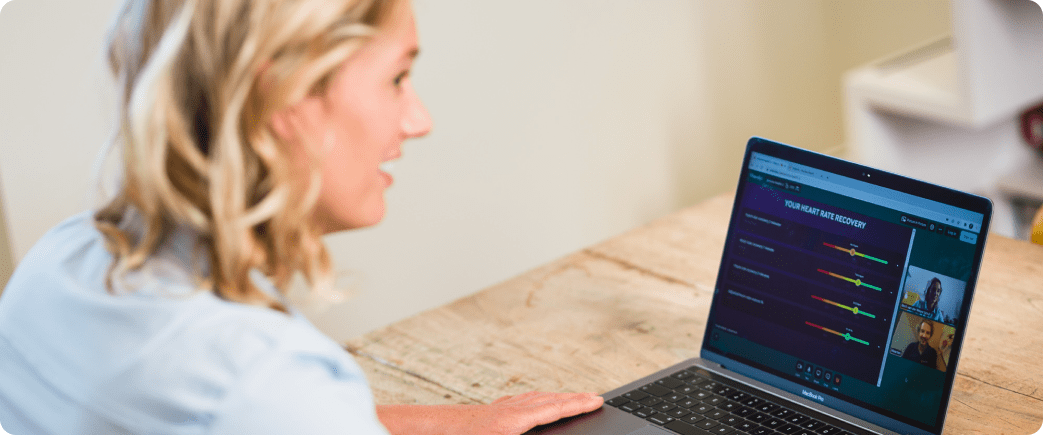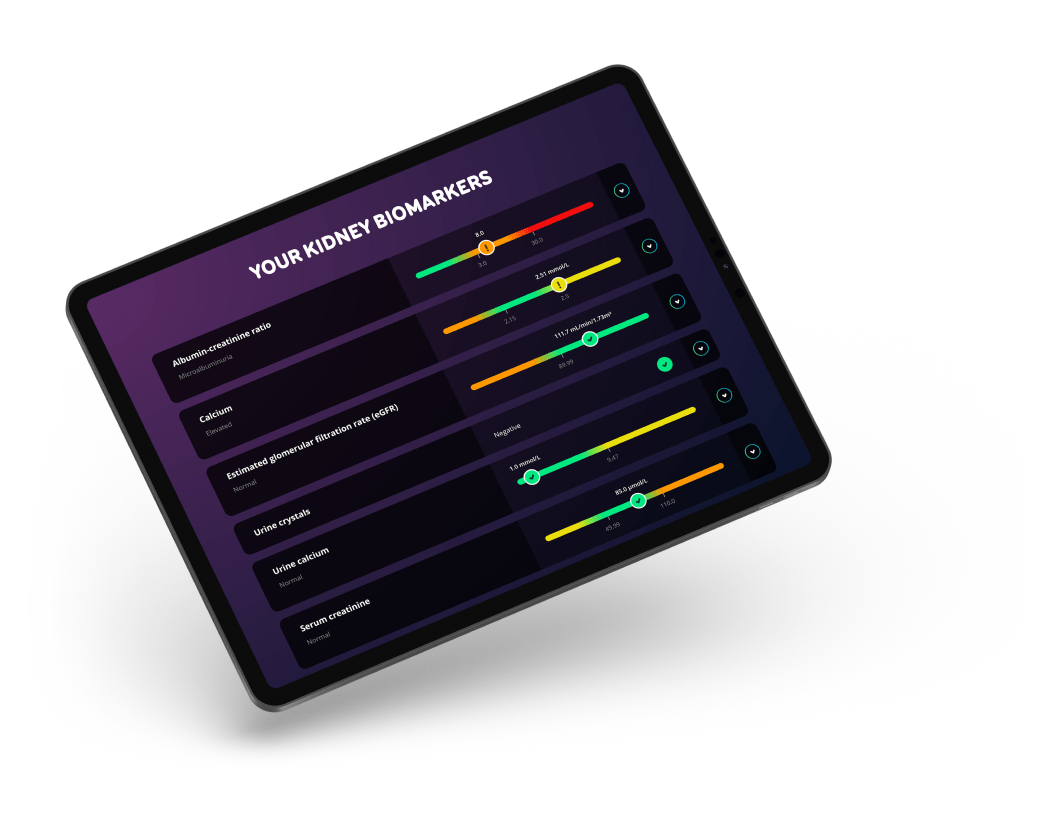16/6 By Rianne Meijerman, Head of User Onboarding & New Business Development
Preventive health policies: the benefits for organizations

Interest in good health is growing inside and outside of organizations. This is a big opportunity for employers, because healthy employees are more employable, more energetic and more productive. With preventive health policies, employers can support their people in their pursuit of better long-term health outcomes. Read more in this blog.
Tags: preventive healthcare, preventive medical examination, lifestyle, health check, 360-degreee health, health programs, vitality programs, sustainable employability, healthy employees, vitality in the workplace
Figures and trends: the current situation
Health is the true wealth, as Mahatma Gandhi once said, and more and more people are discovering the wisdom of his words.
Over the past few years, interest in healthy living has been growing across all layers of society. For example, between 2007 and 2018, the number of gym locations increased by 78 percent [1] .
But as a result of the pandemic, interest in health has increased even more. We learned important lessons: people are more resistant to infections when they are fit, and it is easier to get through a difficult lockdown period when you are feeling comfortable with your own mental health.
Health is also increasingly a top priority for employees – a favorable development for the world of work.
Employers are clearly now aware that healthy people in the workplace are more employable, more mentally resilient and more productive. Free from health complaints, they have more energy for their work and can establish better relationships with colleagues and customers. When employees are intrinsically motivated to improve their health, this is a big benefit for employers.
Health remains a challenge
Of course, the growing interest in health does not mean that the health of the Dutch working population is going to automatically improve.
In particular, poor nutrition, obesity and poor lifestyle habits remain big challenges to address [2] . In the Netherlands, about half of adults are now overweight and one in seven is obese. Chronic conditions that often accompany obesity, such as type 2 diabetes and cardiovascular disease, have consequences in the workplace. For example, people with diabetes often struggle to keep their energy levels stable, which can affect their work performance.
Counting the costs
For organizations, poor health also has a clear financial cost. The costs of absenteeism due to illness are often estimated at €250 to €300 per employee per day [3].
There are also hidden costs. According to TNO, people with health issues in the workplace have less resilience and more difficulty meeting work demands [4]. Employee health and employee engagement are two of the most important factors influencing performance and talent retention. Healthy employees are more productive [5] and radiate good energy to colleagues and customers.
What is a preventive health strategy?

A preventive health strategy is all about having a coherent approach that enables employees, with the support of their employers, to take control of their health. The idea is to maintain a healthy work environment and prevent problems with the aid of personalized health data, coaching and guidance.
A growing number of organizations in Netherlands are offering their employees access to health and wellbeing programs, with a number of developments taking place in recent years. First, programs are starting to become less ‘one size fits all’ and much more individualized. Second, there is a greater emphasis on prevention.
Compared to other countries, most employee wellbeing programs in the Netherlands are still somewhat generic in nature; they are not very personalized to individual needs [6] .
According to Bas van der Tuyn of Aon Health Solutions, who conducted research on this [7] , this has to do with the collective labor agreement culture, which often means that a one-size-fits-all approach is chosen. “In other countries, more attention is paid to what individual employees find important. Customization pays off,” says Van der Tuyn in the Trouw newspaper.
In Van der Tuyn’s view, Dutch employers see wellbeing primarily as a service for employees, not as an investment. Thus, there is an opportunity for Dutch employers to make investing in their people’s health more businesslike. “A healthy employee is not only happier, but is also more ‘present’, more productive and more positive about their workplace towards others,” he says.
Proactive prevention
Compared to traditional employee wellbeing programs, the added value of a ‘preventive’ approach is that the proactive prevention of problems becomes central.
A preventive strategy relies on high-quality health data so that employees can optimize their health. By continuously keeping employees informed about their health situation, issues can be pre-empted and addressed in good time. Technical aids such as wearables and apps give employees insight into both the current state of their health and the possible risks they may be facing. With the help of coaching, lifestyle and behavior can be adjusted proactively.
Employees, as already mentioned, are interested in improving their health. By having an insight into their own data, they can be in control and, supported by professional help, realize the desired improvements. Good quality data also means that they can receive timely feedback about their progress over time.
Towards an integrated approach
According to Hanno Pijl, endocrinologist and professor of diabetology at the Leiden University Medical Center (LUMC), and also a member of the scientific advisory board of Ancora Health, at least six aspects must play a role in (corporate) health policy to reduce the risk of non-communicable diseases.
- Diet: encouraging people to avoid eating too much and eating the wrong things
- Exercise: encouraging more physical activity
- Sleep: establishing regular patterns and enough sleep time
- Stress: reducing the incidence of chronic stress (often work-related)
- Smoking: encouraging people to quit
- Alcohol consumption: encouraging moderate consumption habits.
All these habits play a role in preventive health programs. For a preventive health strategy be successful, organizations need to have an integrated 360-degree approach in which the various aspects are tackled simultaneously.
It’s also essential for organizations to pay sufficient attention to culture-related topics such as employee development, autonomy and agility. Health and vitality are part of broader interplay between the individual, their team and the organization.
What benefits does a preventive health program bring?

Wellbeing programs are valued by employees and contribute to the employer’s labor market image. The advantage of preventive programs is that they prevent problems before they occur.
In general, health and wellbeing programs are highly valued by employees [8] . Employees who use them are more likely to recommend their organization to others as a good employer. In today’s increasingly tight labor market, that is an important consideration for HR departments.
Moreover, there is a link between employee wellbeing and increased levels of employee engagement. Engagement has many beneficial effects for organizations, including reduced absenteeism and staff turnover.
But the greatest benefit of preventive health naturally belongs to employees themselves. Better health improves people’s quality of life. As Hanno Pijl emphasizes, chronic conditions, including type 2 diabetes, can be controlled and even reversed, which means people can live healthily for longer.
The Ancora Health approach

For a preventive health strategy to be successful, the best results are achieved with a personalized approach supported by data. At Ancora we have developed employee wellbeing programs in which insights into personal data and effective coaching and support, often using digital means, are central.
Imagine if you, as an employee, could gain insights into your current and future health risks. And that based on these insights, take targeted actions to work on a healthier lifestyle. That’s what we offer. Using data applications in combination with expert coaching and support, we develop health programs based on people’s personal information and data. This allows employees to take their health into their own hands.
When information about current and future health risks is presented in a user-friendly manner, it is often experienced as a real eye opener. It motivates people to make conscious choices to improve their health.
By making people aware of their personal health risks, offering a measuring point they can work towards and then re-measurement, progress becomes transparent. To achieve truly sustainable long-term health outcomes, employees need guidance, coaching and motivational support to achieve their goals.
As part of our focus on prevention, we always encourage organizations to introduce our programs before employees are actually sick. Research shows that the sooner people start optimizing their eating habits, lifestyle and mental wellbeing, the more benefits they will reap – now and in the future.
As one of Europe’s leading preventive health specialists, Ancora offers a range of health programs for employers. Our mission is to empower people to take ownership of their (mental) health, wellbeing and performance by combining the power of the most advanced science, data and technology into a personalized program that delivers positive health outcomes.
[1] NL Actief 2018 https://www.nlactief.nl/actueel/cijfers-fitnessbranche-2018/
[2] World Health Organization: WHO European Regional Obesity Report 2022
[3] MKB Servicedesk 2021 https://www.mkbservicedesk.nl/personeel/verzuim-reintegratie/wat-kost-ziekteverzuim-per-medewerker-bereken-je-kosten
[4] Swenneke van den Heuvel, Karolus Kraan en Luuk Bouwens: Duurzame inzetbaarheid in Nederland; TNO 2021
[5] CDC 2015 https://www.cdc.gov/workplacehealthpromotion/model/control-costs/benefits/productivity.html
[6] Global Wellbeing Survey 2021
[7] Barbara Vollebregt: Hoe werknemers fit kunnen blijven? Nederlandse bedrijven kunnen heel wat leren van het buitenland; Trouw 2021
[8] Forbes 2019 https://www.forbes.com/sites/nazbeheshti/2019/01/16/10-timely-statistics-about-the-connection-between-employee-engagement-and-wellness/
SUBSCRIBE
Subscribe to our mailing list to be among the first to know about our latest blogs.
Learn how Ancora handles your personal data in our privacy policy